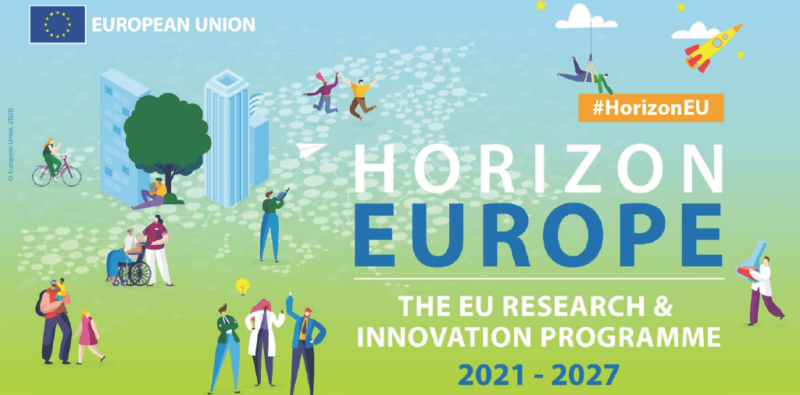
LifeWatch ERIC participates in project proposals both in order to expand the communities which make use of its assets, and because successful proposals provide additional resources which help expand and improve its Infrastructure and address the needs of its stakeholders. Luckily, several of the project proposals submitted to Horizon Europe which LifeWatch ERIC helped to draft over the course of last year have recently been approved. LifeWatch ERIC is keen to begin work on these synergistic projects, all regarding biodiversity and ecosystem research services and FAIR data, the key priorities of the Infrastructure. Below is an outline of all the most recent approved projects involving LifeWatch ERIC, which are expected to launch in a few months’ time. You can see the projects that LifeWatch ERIC is already involved in here.
BioDT: 22 partners
The goal of Biodiversity DT is to push the current boundaries of predictive understanding of biodiversity dynamics by developing a Digital Twin providing advanced modelling, simulation and prediction capabilities. By exploiting existing technologies and data available across relevant research infrastructures in new ways, BioDT will be able to more accurately model interaction between species and their environment. Scientists at Research Infrastructures will be able to use the BioDT to 1) better observe changes in biodiversity, 2) relate these changes to possible causes, and 3) better predict effects of changes based on influences on these causes by either climate or human intervention. The consortium brings together a dynamic team of experts in biodiversity, high performance computing, artificial intelligence and FAIR data to realise the first biodiversity Digital Twin prototype.
MARBEFES: 23 partners
The overall aim of MARBEFES is to determine the links between the biodiversity and functioning of coastal and marine ecosystems and the resulting ecosystem services. The project will progress substantially beyond the current state-of-the-art understanding of the causes and consequences of the maintenance, loss and gain of biodiversity and its ecological and economic value, and the repercussions of this for the management and governance of European seas. MARBEFES will identify the tools to value different natural capital resources and inform planning from financial allocations to management and with monetary and non-monetary benefits. In this, the project advances knowledge through linking marine biodiversity and its ecological structure and functioning to ecological and economic valuation.
Marine SABRES: 22 partners
Marine SABRES will set European marine management on a course to reverse biodiversity decline, it will conserve and protect biodiversity by integrating sustainable ecosystems and a resilient blue economy; enable managers to make sustainable decisions; empower citizens to engage with marine biodiversity conservation; promote sustainable development and in coastal and marine sectors. The project is comprised of an interdisciplinary consortium including world leaders in the field of Ecosystems-Based Management and Social Ecological Systems distributed across Europe and focusing demonstration of practical management efforts in three Demonstration Areas (Tuscan Archipelago, the Arctic North-East Atlantic and Macaronesia) before upscaling throughout Europe and beyond.
FAIR-IMPACT: 28 partners
FAIR-IMPACT focuses on expanding FAIR solutions across the EOSC, identifying proven domain solutions and facilitating the interoperable uptake of these solutions across scientific domains and for different types of research output. This includes the overall FAIRification of various research objects from assigning and managing identifiers, describing them with shared and common semantics to making them interoperable and reusable. The project’s ambition is to build a web of FAIR data and related services together with relevant stakeholder groups, and to take steps towards realising the web of Open Science. It will contribute to transforming the way researchers share and exploit research outputs within and across research disciplines, and to the facilitation of scientific multi-disciplinary cooperation, improving public trust and reproducibility in science.
Agroserv: 73 partners
Integrated SERVices supporting a sustainable AGROecological transition (AGroServ) will facilitate a systemic and holistic approach to understand the threats and challenges agriculture is facing, towards the implementation of a resilient and sustainable agri-food system. The project proposes a transdisciplinary offer of services, integrating the actors of the agriculture system in the research process, of which the farmers are the first, thanks to a wide offer of living labs across Europe. It will develop a wider catalogue of integrated and customised services, providing a strong community building and training programme for access managers and users. Results from the research performed under AgroServ will be synthetised to be use in the scope of evidence-based policy making. Data from AgroServ will be open and compliant with FAIR practices, and made available on the long-term to the communities, and be linked with European initiatives, such as the EOSC.
OpenEM: 21 partners
The Open-Earth-Monitor will increase European capability to generate timely, accurate, disaggregated, people-centred, accessible (GSM-compatible) and user-friendly environmental information based on Earth Observation data. The project will achieve this by building a cyberinfrastructure anchored in FAIR data principles, leveraging and improving our existing platforms OpenEO.org, Geopedia.world, GlobalEarthMonitor.eu, EarthSystemDataLab.net, OpenLandMap.org, OpenDataScience.eu, LifeWatch.eu, XCUBE and EuroDataCube.com. Specifically, it will innovate the implementation of original cloud-based solutions to seamlessly integrate in-situ (point, site) & EO data so that we can produce environmental information at analysis- and decision-ready levels, the implementation of fully-scalable Automated Mapping / AutoML frameworks, user-experience-designed data provision and Apps possibly reaching millions of users across EU and globally, and financial assessment tools allowing users to directly quantify ecosystem services (SEEA methodology) in order to identify optimal environmental and climate solutions and build business solutions.